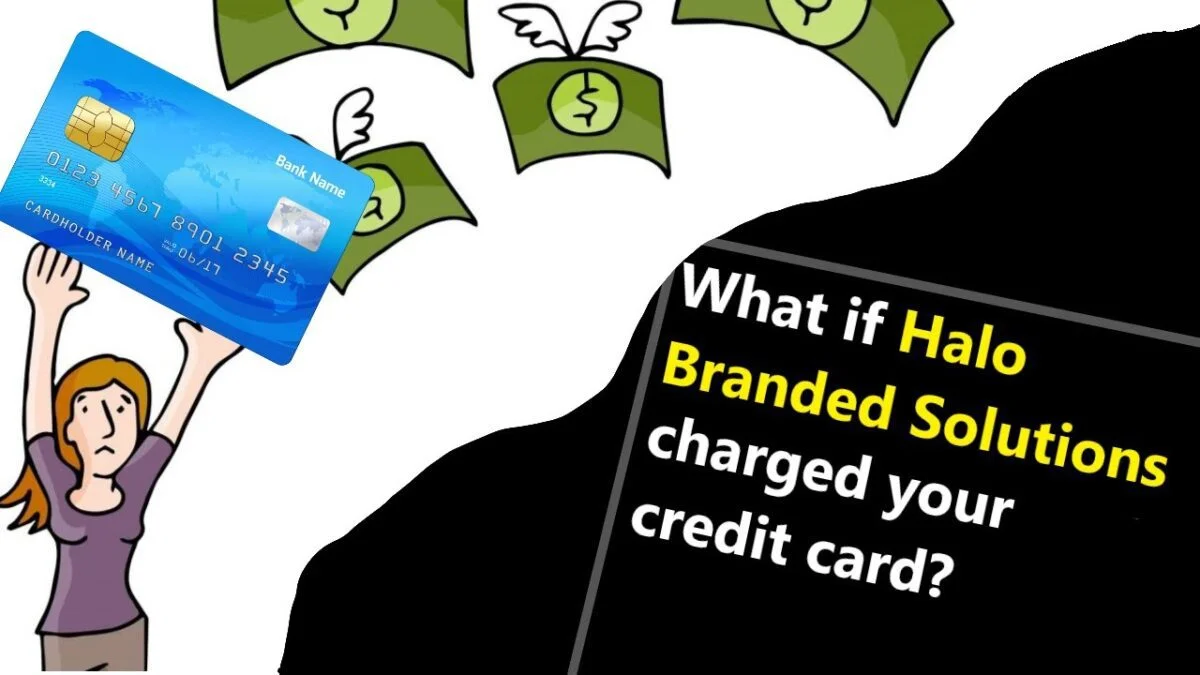Halo Branded Solutions Credit Card Charge: Some of our readers reported a suspicious transaction on their credit card, which emerged as Halo Branded Solutions. If you have a similar transaction but can’t remember you made it, we’re here to help. There are times when your card provider will charge you for another reason. We will be sharing information about halo branded solutions credit card charge so go ahead and check it out now.
Table of Contents
What is the Halo Branded Solutions credit card payment about?
According to some users on the Internet, this transaction comes from the credit card issuer. Individuals reported that fees associated with the annual fee, interest fee, late payment fees, international transaction fees, balance transfer fees, advance fees, over-the-limit penalty, or the refunded payment fee are billed as per this description. So you can check if you are using a Halo branded card or if your issuer has charged a similar transaction. The bank can provide more clarity about the transaction. If you still have doubts about the transaction, please see more information in the next section of the page.
Halo Branded Solutions Credit Card Charge
If you noticed a credit card charge from Halo Branded Solutions on your statement and you don’t remember processing that transaction, read through to the end.
These are possible reasons why your Branded Solutions and any other credit card could be charged without you initiating a transaction.
Payment Of An Annual Fee
Many credit cards charge an annual fee to hold the card. Annual membership fees generally range from $95 to $500. Most cards have the same annual fee year after year, while others may waive the price the first year you have the card.
Halo Branded Solutions Credit Card Charge – Interest
If you don’t pay your credit card debt in full each billing cycle, you will be charged interest. Your annual percentage rate (APR) is stated in your cardholder agreement as the amount of interest charged to you (APR).
Most credit cards have variable APRs that fluctuate with the prime rate, but others have fixed APRs that do not fluctuate with the prime rate. However, because your APR is likely to fluctuate, you should check your online account and/or most recent bill each billing cycle to see what APR you are being charged.
Please note that some transactions, such as withdrawing a cash advance, are not covered by the waiting period. In this situation, you would start accruing interest the day you withdraw the money.
Late Payment Fee
You will be charged a fine of up to $29 for the first violation and up to $40 for additional violations within six billing cycles if you fail to pay your credit card bill on time.
Commission for International Transactions
Additional fees may apply each time you swipe your card when making purchases outside of the United States. These fees are usually about 3% of each transaction.
Balance transfer commission
When you transfer debt from one credit card to another, you typically pay a 3% to 5% fee for each transfer, with a minimum rate of $5 or $10.
Cash advance costs
Cash advances may seem like a convenient way to get money quickly, but they come at a high price. Card issuers typically charge a 3% to 5% fee on any cash advance, which can add up quickly if you’re withdrawing large sums of money.
About Limit Fee
Card issuers may charge you if you exceed your credit limit, but it cannot exceed the amount you spend. According to the 2009 CARD Act, you must choose to approve these charges, which makes it different from the others. When you try to spend more than your credit line, your creditor will usually decline your transaction, but you can pay a fee of up to $35 to have these transactions accepted. If you don’t sign up, your card issuer will reject any transaction you try to make above your limit.
Commission for Returned Payments
Your payment can be refunded if you want to pay your credit card bill, but you don’t have enough money in your bank account. As a result, your card issuer may charge you a fee of up to $40.
For example, if you pay a $750 bill with only $500 in your checking account, your card issuer may charge you a $40 fee, which will be added to your bill.
Conclusion – Halo Branded Solutions Credit Card Charge
Credit cards come with a host of fees that may seem insignificant in the short term, but add up over time. It’s a good idea to familiarize yourself with the halo branded solutions credit card charge we’ve discussed so far, as well as the steps you can take to avoid them. Paying on time, checking that you have enough money in your bank account, and staying under your credit limit are just a few simple strategies to avoid paying high fees.
If you believe you have been the victim of credit card fraud or scams, you should contact your banking institution as soon as possible.

